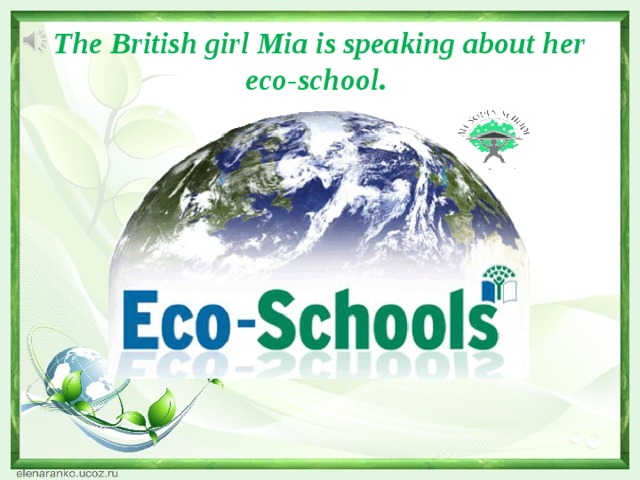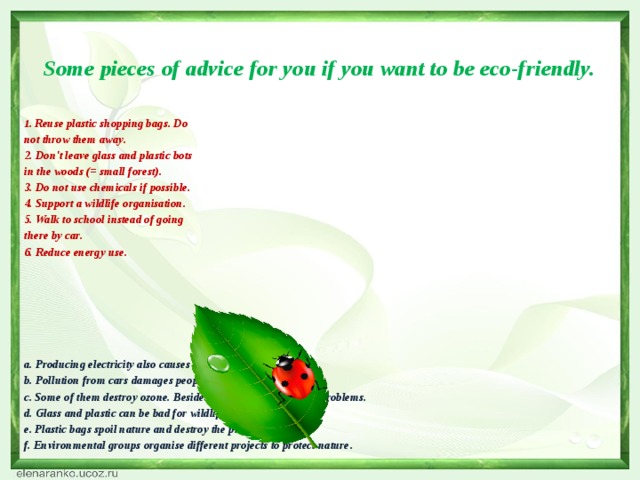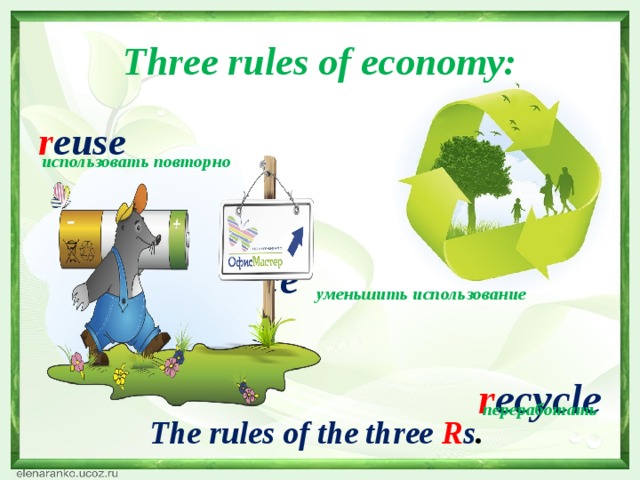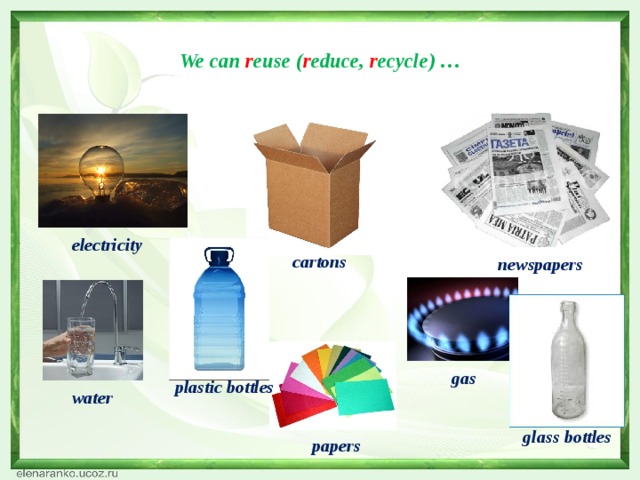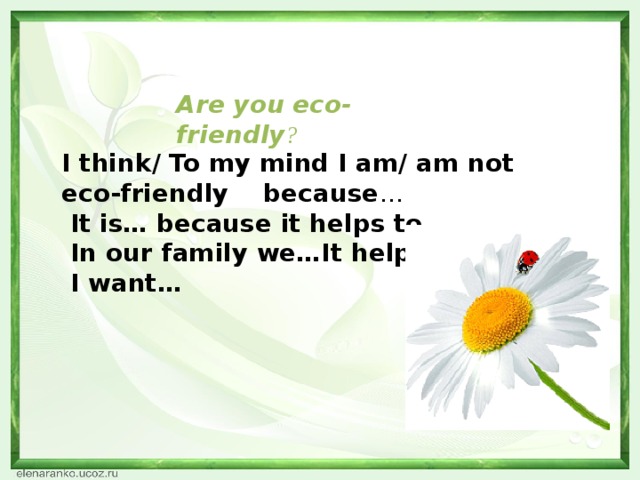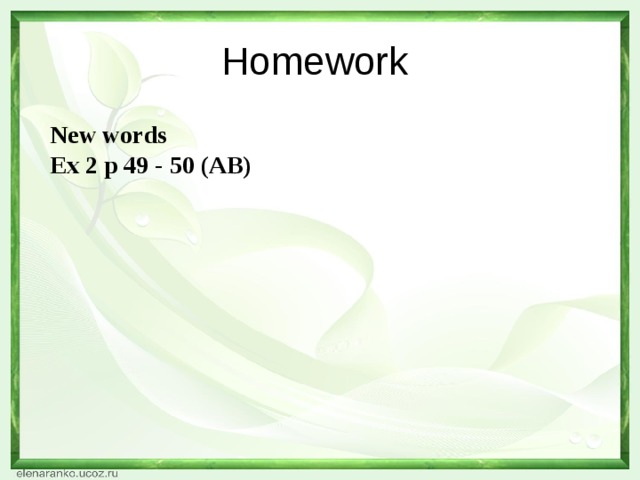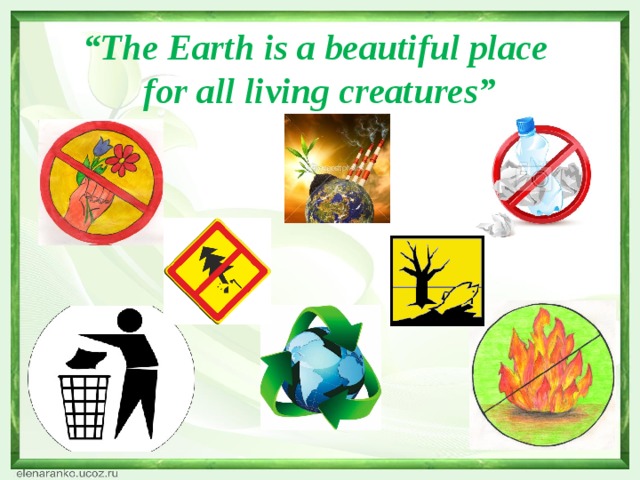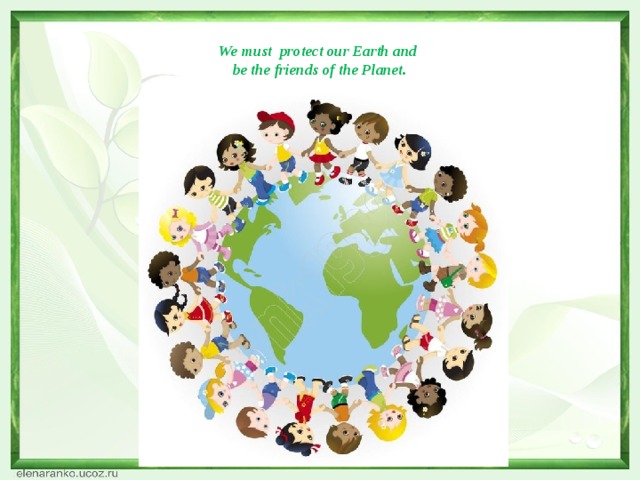| Организационный момент. Мотивирование (самоопределение) учебной деятельности
Определение темы урока
Планирование деятельности обучающихся
Фонетическая зарядка |
T: Get ready for the lesson. I’m waiting for you to be quiet. Good afternoon, dear Students and Guests! Please, students, turn around and greet our dear guests saying ‘Hello, Guests!’ Welcome to English lesson for all. Take your places, please. How many students are absent?
T: I want to start our lesson with a short cartoon. Watch it and try to understand what we shall talk about at this lesson. (About Ecology)
После просмотра мультфильма учащиеся озвучивают свои предположения о теме урока What is the topic of our lesson? What does the word eco-friendly mean? Предлагает учащимся назвать свои ассоциации с темой урока.
Today we are going to speak about ecology, ecological problems, the influence of
a man on the environment, You know that it’s very important to save our nature and the Earth clean. That’s why every person should be eco-friendly. But what does it mean? Are you eco-friendly? Let’s learn about it and answer these questions.
What do we need to know to speak about this topic? Let’s make a plan of our lesson. Look for on your desks cards for planning. Choose only 4 of them. The steps of the lesson: Improve pronunciation Study some new words Practise new vocabulary See examples of how they can be used Use the words in context Practise English related to the ecological problems; Discuss your attitude towards ecological issues; Check your listening skills Let’s sum up! We have chosen next points… We need to work hard to achieve these goals.
You’ve got self-assessments cards on your desks. During our lesson you have a chance to evaluate your work yourselves using a self-assessments card. You should understand how successful you can use the words, do some grammar exercises, speak about environmental problems, find useful information and work in groups.
Let’s practice our tongues. Look at the blackboard.
Listen, repeat and read after me:
[i] Litter, litter bin, river, fish [i:] Greenpeace, clean, tree, free, keep [a:] glass, plastic, master, vase [З: ] earth, disturb, burn, hurt [ai] recycle, environment, wildlife, side, hide.
|
I think we are going to speak about ecology. / I think we are going to speak about how to help our ecology. You’re absolutely right.
The topic of our lesson is “Are you eco-friendly”.
| Личностные:личностное самоопределение,нравственно-этическая ориентация. Коммуникативные: планирование учебного сотрудничества с учителем и сверстниками.
Регулятивные:целеполагание, планирование. Коммуникативные:построение высказываний в соответствии с коммуникативными задачами. Личностные: самоопределение |
|
Актуализация знаний |
We have trained our tongues and now we are ready to speak about our topic. What problems of our planet do you know? Give some facts proving that: What the Names of environmental groupsdo you know
|
Обучающиеся выполняют просьбу учителя. ( по очереди называют)
P1 – Water pollution P2 – Air pollution P3 – Animals’ problems P4 – Soil pollution
( по очереди называют)
P1 – Rivers are dead P2 – Less fish in the rivers as a result P3 – A lot of tins and paper plates all other the place P4 – Much litter in the forests and parks
( по очереди называют) P1: Greenpeace P2: Friends of the Earth Р3: RSPCA | Познавательные: осуществлять актуализацию полученных знаний. Коммуникативные: формировать умение монологической речи Регулятивные: выбирать действия в соответствии с поставленной задачей. Личностные: формировать личностные качества учащихся необходимые для работы.
|
| Первичное усвоение новых знаний
| To speak about this topic we need to learn some new words. First, look at the screen and try to guess the meaning of the words
Write down these words into your vocabularies.
Now let’s divide these words into such columns as verbs, nouns, adjectives and adverbs.
Thank you. Let’s make up the expressions or sentences using these words and.
| Выполняются задания по активизации лексики | Познавательные: осуществлять актуализацию новых ЛЕ, основываясь на учебную ситуацию и личный опыт. Коммуникативные: слушать учителя и друг друга для воспроизведения и восприятия необходимой информации и поддержания учебно–познавательный процес, строить монологическую речь по образцу в соответствии с поставленной задачей. Регулятивные: выбирать действия в соответствии с поставленной задачей, использовать речь для регуляции своего действия. Личностные: формировать личностные качества учащихся необходимые для работы; формировать самооценку на основе успешности учебной деятельности, мотивацию учебно – познавательной
|
| Развитие навыков аудирования
Этап освоения видов деятельности
Ознакомление учащихся с новыми понятиями и реалиями: three R’s.
Этап закрепления нового материала
| People of over the world worry about the ecology. In Britain there are some eco- schools. The British girl Mia is speaking about her eco-school. Let’s listen to the text and answer the question: What do pupils do at eco-schools according to the text? Let’s make a flower. (На доске середина цветка, ниже закрытые лепестки, на которых написаны фразы. Учащиеся по одному выходят к доске, берут лепесток и переводят фразу на русский язык. В итоге получается цветок с разноцветными лепестками) put the litter in the bin, reuse and recycle newspapers, cans, plastic and glass bottles, help wildlife, don’t disturb animals, build nature gardens, bird boxes, walk or cycle to school, don’t use chemicals
Now listen to once again and answer the questions: Is Mia eco-friendly? What does she personally do? What do you think? I think/ To my mind Mia is/ is not eco-friendly because she …
Now you know what pupils do at eco-schools. Here are some pieces of advice for you if you want to be eco-friendly. Is it difficult to follow these pieces of advice? Match the two parts. Work in pairs, please. I’ll give you 3 minutes Let’s check it.
T.: - British and American children learn a lot of about the environment at school. All of them remember the tree R’s: reduce, reuse, recycle.
What can we reduce? reuse? recycle? Why?. Говорение с использованием речевого образца: We can recycle paper.
It is very important because it helps to save forests. We can reduce using electricity.
It is very important because it helps to protect nature from waste fumes.
We have already learnt about eco-schools and what pupils can do, some pieces of advice if you want to be eco-friendly and what we can do to protect our nature. But are you eco-friendly? What can you do to help our Earth to be clean? Tell us about it. Use the structure, please. I think/ To my mind I am/ am not eco-friendly because… It is… because it helps to… In our family we…It helps to… I want…
|
P1, P2, P3... Pupils put their litter in a bin Pupils reuse and recycle newspapers, cans, plastic and glass bottles.
P1, P2, P3… I think Mia is eco–friendly because she does not disturb animals. To my mind Mia is eco-friendly because she reuse glass bottles and cans.
P1↔P2… 1.Reduce energy use.→ Producing electricity also causes climate change. 2.Do not use chemicals if possible.→Some of them destroy ozone. 3…→ 9
P1↔P2 I think I am eco-friendly because I walk or cycle to school. It is very important because it helps to reduce air pollution. In our family we reduce using electricity and reuse glass and plastic bottles. It helps to save our Earth clean. I want every person to protect nature.
| Коммуникативные: слушать, воспринимать информацию и реагировать согласно речевой ситуации. Регулятивные: выполнение учебных действий в последовательности, реализованных в речевых формах. Познавательные: осознанно и произвольно строить речевые высказывания в устной форме.
Познавательные: оценивать процесс и результат деятельности и осуществлять анализ полученных новых знаний. Коммуникативные: формулировать собственное мнение и позицию и свои затруднения. Регулятивные: выделять и формулировать основное и использовать речь для регуляции своего действия. Личностные: формировать адекватную мотивацию учебной деятельности, понимать значение знаний для человека.
|
| Мини- проект (создание листовок в защиту окружающей среды )
| Paire work. The Earth is a beautiful place for all living creatures. Let’s make our difference by preparing a poster with leaflets. You should write a slogan on the picture. Don’t cut wild flowers! Don’t leave paper and glass in the forest! Save the river! Don’t disturb animals! Put the litter in the bin! Don’t pollute the air! Do not leave the fire in the forest! Don’t use chemicals Thank you very much. You see we must protect our Earth and be the friends of the Planet. Pare work. Welcome to the gallery of environmental protection which is called “The Earth is a beautiful place for all living creatures”! As you can see there are no any pictures here. You should draw leaflets in accordance with the proposed topics. You have 5 minutes. 1. Don’t cut wild flowers! 2. Don’t leave paper and glass in the forest! 3. Save the river! 4. Don’t disturb animals! Put the litter in the bin! Don’t pollute the air! Do not leave the fire in the forest! Don’t use chemicals!
|
Пара получает лист с лозунгом, рисуют в соответствии с лозунгом.Представляет свой проект,выслушивает товарищей. Вырабатывает общее решение | Коммуникативные: формировать умение работать в паре, слушать друг друга. Регулятивные: формирование умения выполнять учебную деятельность в соответствии с поставленной задачей. |
| Рефлексия учебной деятельности | Совместная оценка результатов работы учениками и учителем. The time is up. Thank you very much for your hard work at the lesson. Your marks are… Are you a friend of the Earth? Do this quiz and you will know it. T: If you do it, put “v”. Then count “v”. Put the “smile” here if you get 5(3-4,1-2) You always throw away litter into a bin. You clean the school territory. You help to plant trees in the school garden. You don’t break trees. You don’t disturb animals and birds.
| Адекватно оценивает свою деятельность и работу товарищей, положительно воспринимает критику и предложения. Высказывает мнение о дальнейшей работе | Регулятивные: оценка-осознание уровня и качества усвоения. Познавательные: формирование умения делать выводы |





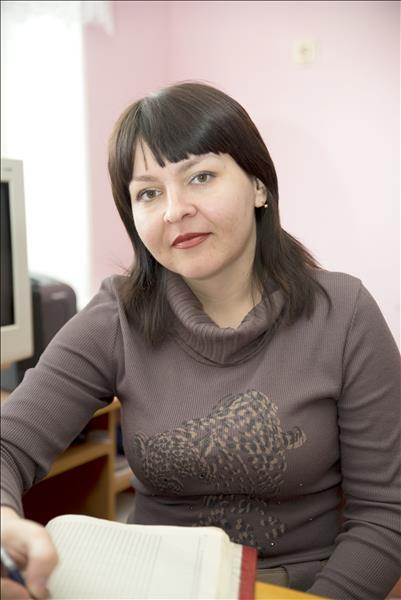

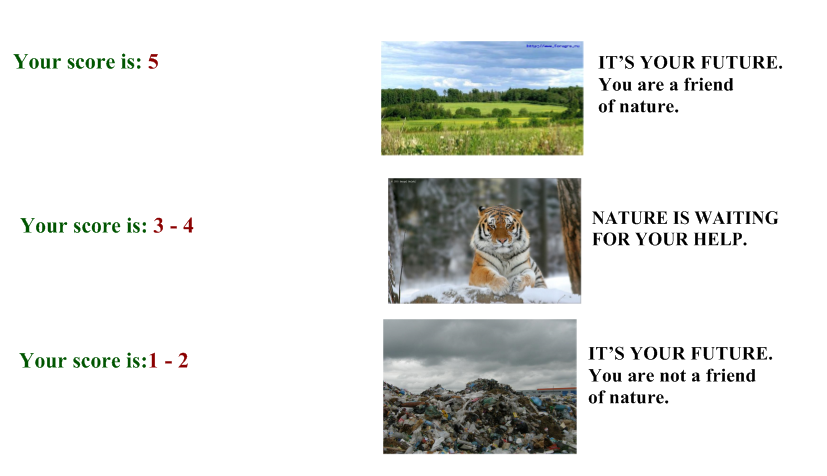
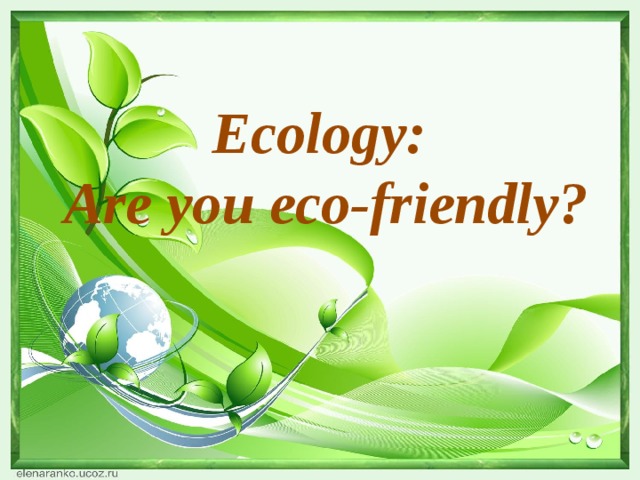
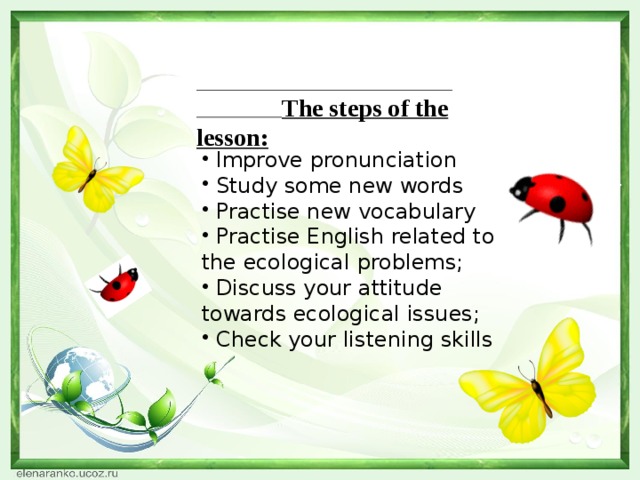
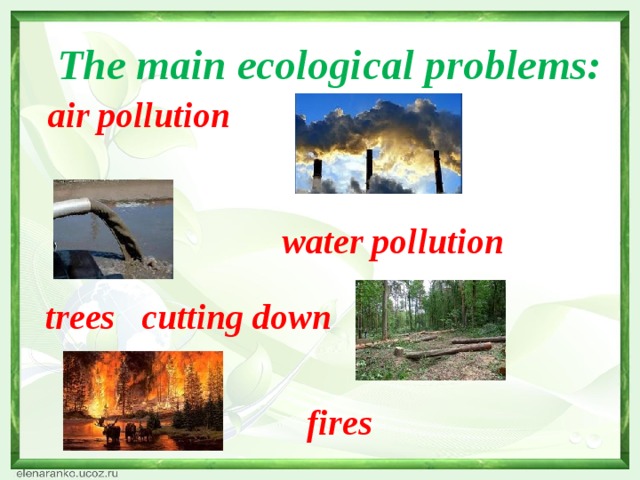
![environment [in'vairənmənt] Earth (the Earth) [з:θ] to protect [prə'tekt] a bin](https://fsd.multiurok.ru/html/2017/12/25/s_5a40bc35b6880/img_s781769_1_3.jpg)
![to pollute [pəlu:t] to recycle [ˏri:ʹsaikl] glass [glɑ:s] to disappear [ˏdisəʹpiə]](https://fsd.multiurok.ru/html/2017/12/25/s_5a40bc35b6880/img_s781769_1_4.jpg)
![eco-friendly ['i:kəʊˏfrendli] = en,viron'mentally 'friendly — не приносящий вреда природе pollution [рəʹlu:ʃən] — загрязнение (окружающейсреды) Earth (the Earth) [з:θ] — Земля to protect [prə'tekt] — защищать, охранять nature ['neitʃə] — природа to pollute [pəlu:t] — загрязнять (делать непригодным для использования) to recycle [ˏri:ʹsaikl] — возвращать в оборот, перерабатывать glass [glɑ:s] — стеклянный to disturb [di'stɜ:b] — причинять беспокойство, мешать to reduce [ri'dju:s] — уменьшать, сокращать to disappear [ˏdisəʹpiə] — исчезать New words environment [in'vairənmənt] — окружающая среда, природа to destroy [di'strɔi] — разрушать, уничтожать a bin — контейнер для мусора](https://fsd.multiurok.ru/html/2017/12/25/s_5a40bc35b6880/img_s781769_1_5.jpg)
